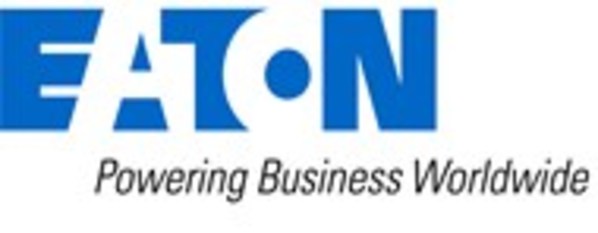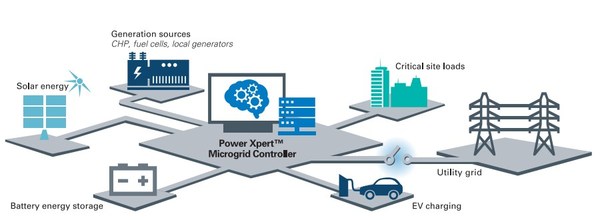Eaton launches electric vehicle charging infrastructure and battery energy storage system solutions to power APAC’s transition to a low-carbon future
 |
Coming on the back of its partnership with Singapore's Sustainable Tropical Data Centre Testbed, the introduction of these energy transition solutions builds on Eaton's mission to improve the quality of life and the environment.
KUALA LUMPUR, Malaysia, Oct. 18, 2022 /PRNewswire/ — Global power management company Eaton announced today the launch of new power management solutions to support Asia Pacific's (APAC)'s green energy transition. This includes a suite of electric vehicle charging infrastructure (EVCI) solutions as well as its xStorage range of battery energy storage systems (BESS) designed for APAC's unique business and operational environment.
With the electrification of the economy, and the emergence of new opportunities for businesses and consumers to produce their own energy and export it back to the grid, energy will flow through the grid in more directions and through more devices than before.
"When we incorporate renewable energy into the grid, one key challenge is balancing its variability against always-on demand," said Jimmy Yam, Vice President, East Asia, Eaton. "Flexible, intelligent power systems will be key to making a more sustainable future a reality. Beyond ensuring power reliability and managing costs, such solutions can help businesses navigate the transitional challenges of adopting greener alternatives – be it meeting evolving regulations and preparing for future shifts in demand."
As part of its broader energy transition mission, Eaton has also entered into a new partnership under Singapore's Sustainable Tropical Data Centre Testbed (STDCT), to drive the development of innovative and sustainable solutions for data centers in the tropics.
"Our latest energy transition solutions cater to the issues businesses face in the necessary shift towards a low-carbon future. With these solutions, and through continued collaboration with the broader industry, we hope to empower more organizations in APAC to participate in the energy transition through them," Jimmy added.
Through Eaton's Everything as a Grid approach to the energy transition, different stakeholders are able to play a role in generating, balancing, storing and distributing electricity – which are historically done by utilities. These include residential, commercial and industrial (C&I) properties, such as data centers, factories and electric vehicle (EV) transport operators.
Helping buildings and EV fleet operators meet growing demand for cleaner energy vehicles
Fueled by maturing sustainable development policies and government incentives, EV ownership has become more prevalent in recent years. Policymakers worldwide are recognizing the importance of having reliable and accessible EV charging infrastructure in place to support growing EV adoption.
Within APAC, countries have stepped up their carbon emission commitments by pushing forward with sustainable transportation and mobility policies. In Malaysia, incentives to support the local EV industry were announced at Budget 2022, including tax income exemption for installing and renting EV charging facilities. Elsewhere in the region, the Singapore government proposed to introduce a law which will require new buildings with car parks to be developed with sufficient passive provision to support EV charging points for 15% of total parking spaces.
To help building owners and developers prepare for emerging regulations and future demand, Eaton has introduced its comprehensive suite of EVCI power management and digital management solutions in APAC. Building upon existing technology and insights garnered from Eaton's experience in Europe and America, and tailored to meet the unique needs and opportunities within APAC, this latest suite of EVCI solutions helps building managers and EV fleet operators seamlessly and flexibly operate EV infrastructures. Examples include:
- AC (alternating current), DC (direct current) and prefabricated EV charging station solutions
- Cloud-based EV charging software to help charging operators optimize costs, manage their earnings and have full control of the entire charging network
When coupled with a renewable energy generating system, this enables buildings to reduce the costs of powering EVCI dramatically, unlocking opportunities to create additional revenue streams from EVCI.
A critical component of a renewable energy generation system is the battery energy storage system (BESS). BESSs can store and release energy on-demand, helping to manage the intricacies of a more complex power network, such as bidirectional power flows and variable renewable energy.
Transforming buildings into energy hubs
Beyond EV charging applications, businesses – especially large power consumers such as manufacturing, commercial and industrial facilities – are embracing the adoption of onsite renewable energy sources in order to reduce their carbon footprint. However, concerns over costs may remain. BESSs address this by allowing users to optimize energy costs through peak shaving and participation in demand response programs, such as in Singapore. This helps organizations make a stronger business case to their stakeholders when considering on-site renewables generation and EV charging capabilities.
Other key considerations include ease of installation, reliability and efficient bidirectional power conversion capabilities. Backed by Eaton's operational excellence in power management technologies, Eaton's xStorage range of BESS solutions is designed to support organizations' energy transformations, ensuring power quality and resilience. It is also available in a scalable, modular design that is easy to install and quick to deploy on site. This allows businesses to take part in the energy transition more seamlessly.
More information, including product specifications and types of applications, can be found on Eaton's EVCI solution, xStorage webpages.
Collaborating to low-carbon solutions for the data center industry
The introduction of Eaton's EVCI and xStorage BESS solution comes on the back of Eaton's investment in low-carbon research and development for the data center industry. In June this year, Eaton joined Singapore's STDCT project as a consortium member.
Unveiled in June 2021, STDCT is the world's first data center testbed in the tropics. Through this project, researchers from the National University of Singapore (NUS) and Nanyang Technological University Singapore aim to develop innovative and sustainable cooling solutions for data centers operating in environments with high-temperature and humidity.
As part of this collaboration, Eaton will be providing data center power management solutions such as UPS, lithium-ion batteries and busway systems amounting to approximately S$300,000 to the STDCT. These solutions, which are designed to perform in tropical environments without additional cooling interventions, will be used to support the provision of back-up power for STDCT's experiment labs.
Associate Professor Lee Poh Seng, Programme Director, Sustainable Tropical Data Centre Testbed under the NUS College of Design and Engineering, shared, "The STDCT programme brings together academic and industry experts to tackle common challenges data centers face. Our goal is to make commercially viable, innovative cooling technologies a reality, and enable a greener, digital future. Collaboration is critical to STDCT's success, and we're glad to have Eaton onboard."
Powering a more resilient, sustainable future
By helping businesses implement renewable power and storage strategies, Eaton is helping to make clean energy available whenever and wherever it is needed — be it now or in the future. The company's full range of micro grid and distributed energy resources capabilities offer customers reliable, scalable and efficient solutions for unexpected power loss, and help organizations reduce dependence on local grids. An example is the deployment of a solar- and storage-based micro grid at Eaton's Arecibo manufacturing site, which has reduced the facility's environmental impact and continues to support energy resilience for one of Puerto Rico's largest employers. Amidst the rising threat of cyber attacks, Eaton's "secure-by-design" philosophy, processes and secure development lifecycle are integrated into product development.

Illustration of a distributed energy grid
Through partnerships with industry stakeholders, Eaton is leveraging and augmenting its expertise in power management to advance the transition towards a greener future. Aside from its participation in the STDCT project, Eaton actively collaborates with organizations across the value chain. This includes:
- TES, a provider of sustainable technology lifecycle services – enabling customers to recycle lithium-ion batteries in Eaton's UPS products
- Microsoft – to turn Eaton's UPS into a value-generating, grid-interactive asset, also known as EnergyAware UPS
About Eaton Electrical Sector
Eaton's electrical business is a global leader with deep regional application expertise in power distribution and circuit protection; power quality, backup power and energy storage; control and automation; life safety and security; structural solutions; and harsh and hazardous environment solutions. Through end-to-end services, channel and an integrated digital platform & insights, Eaton is powering what matters across industries and around the world, helping customers solve their most critical electrical power management challenges.
Eaton is an intelligent power management company dedicated to improving the quality of life and protecting the environment for people everywhere. We are guided by our commitment to do business right, to operate sustainably and to help our customers manage power ─ today and well into the future. By capitalizing on the global growth trends of electrification and digitalization, we are accelerating the planet's transition to renewable energy, helping to solve the world's most urgent power management challenges, and doing what is best for our stakeholders and all of society.
Founded in 1911, Eaton has been listed on the NYSE for nearly a century. We reported revenues of $19.6 billion in 2021 and serve customers in more than 170 countries. For more information, visit www.eaton.com. Follow us on Twitter and LinkedIn.










